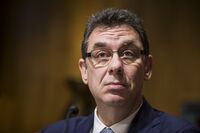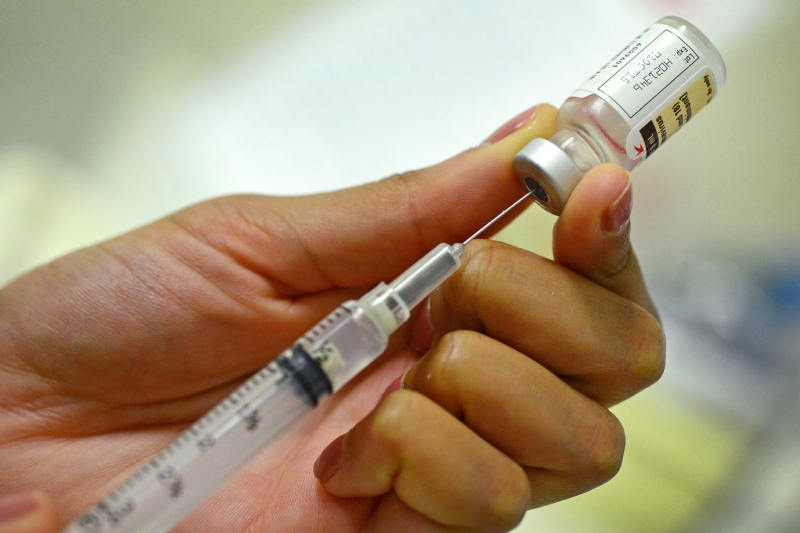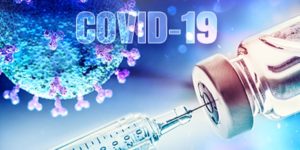Pfizer Inc. said it could seek emergency-use authorization for its Covid-19 vaccine in the U.S. by late November if the shot is shown to be effective in a large late-stage trial, putting to rest any notion that a vaccine could be cleared for emergency use in the U.S. before Election Day.
Safety reviews will dictate the time line, with the U.S. Food and Drug Administration requiring that at least half the people in the study be watched for side effects for two months. That milestone should be achieved in the third week of November, Pfizer Chief Executive Officer Albert Bourla said in an open letter published Friday on the company’s website.

Albert Bourla
“Let me be clear, assuming positive data, Pfizer will apply for emergency authorization use in the U.S. soon after the safety milestone is achieved,” Bourla wrote. An initial readout on whether the vaccine is effective could come later this month, depending on how quickly subjects in the trial — some of whom got a placebo shot — become infected with the virus.
Although Bourla’s letter ends the idea that a vaccine could be cleared in the U.S. before Nov. 3 — a goal President Donald Trump has pushed for — the Pfizer timetable could give the president a partial victory. If Pfizer and its German partner BioNTech SE can say in late October that its inoculation protects people from the virus, that could let Trump claim his administration successfully pushed for a working vaccine before Nov. 3, regardless of whether the FDA has reviewed it.
‘Too Politicized’
“It’s a huge win. It’s a win for public safety,” said Jeremy Faust, an emergency medicine physician at Brigham and Women’s Hospital in Boston. “We don’t want something that works, but we didn’t give patients a full and accurate assessment of the side effects that might be expected among some people.”
Faust was among a group of leading scientists who previously urged Pfizer to wait until at least late November before seeking emergency authorization.
Even mild or moderate side effects could undermine public trust in a vaccine if they weren’t initially understood or explained, something that waiting for two months of safety data makes significantly less likely, he said.
“I think what we effectively did was to point out the risk of ruin was higher if they rushed,” he said. “The worst possible scenario is people just stop trusting Pfizer and their astronomically large portfolio of products.”
‘Right Thing’
Howard Forman, director of the Yale School of Public Health’s health-care management program and another signer of the letter, also spoke approvingly of the decision by Pfizer. If Pfizer had pushed ahead with an October filing, “it was going to seem to be too politicized,” engendering skepticism among members of the public, he said.
Forman, who also signed the letter from the scientists, is participating in the Pfizer trial and received his second dose of the vaccine about a month ago.
“It sounds like they’re doing the right thing,” Forman said, noting that while he’s optimistic about the new November time line, the company still has to prove the vaccine is safe and works, including in different subgroups like the elderly.
The Pfizer partnership and Moderna Inc. are the two front-runners in testing Covid-19 vaccines in the U.S. Both are testing so-called messenger RNA vaccines, a new type of vaccine that turns the body’s own cells into tiny vaccine-making factories. The technology has never been used in an approved vaccine.
Vaccine Leaders
Moderna is only slightly behind Pfizer, and has said it could get preliminary efficacy data by late November. While both began late-stage trials at the end of July, Pfizer is in the lead due to the speed at which it enrolled its trial and quirks in how the vaccine is given. The two doses of the Pfizer vaccine are given three weeks apart compared with four weeks for the Moderna vaccine, shaving a week off the timetable. Moderna also slowed enrollment in its trial slightly to increase diversity among participants in the research.
U.S. trials of two other vaccines are on hold for safety checks, putting them significantly behind the two mRNA vaccines.
A U.S. trial of an AstraZeneca vaccine has been on hold since early September while regulators investigate a participant in the U.K. that experienced neurological issues, although large trials of the vaccine have resumed in the U.K., South Africa and Brazil. And a 60,000-patient trial of a Johnson & Johnson vaccine was paused this week due to an unexplained illness in a participant.
The Bourla letter released Friday confirmed a time line laid out by BioNTech CEO Ugur Sahin this week. The partners haven’t had to stop their late-stage study over safety concerns, Sahin said.
Alex
Koordynator projektu




